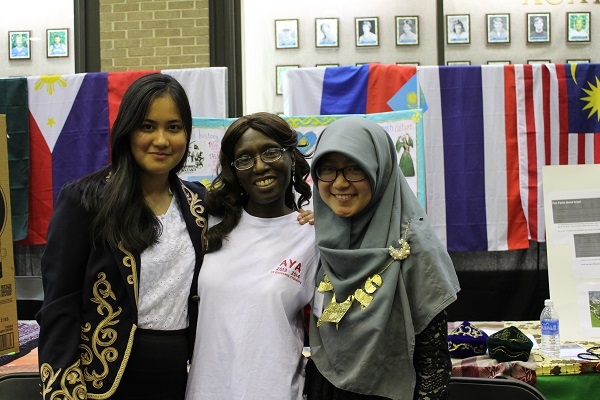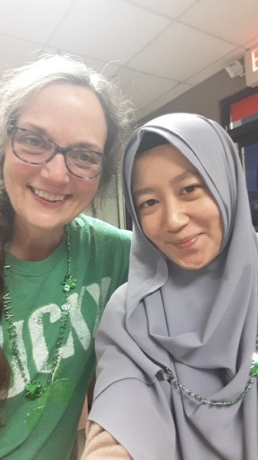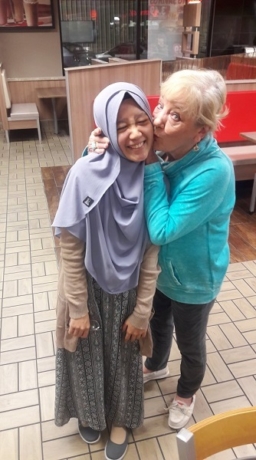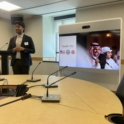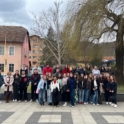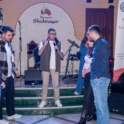Abdulaziz reflects on the highlights from serving as a mentor for CEW.
STORIES
Transformed by Volunteerism
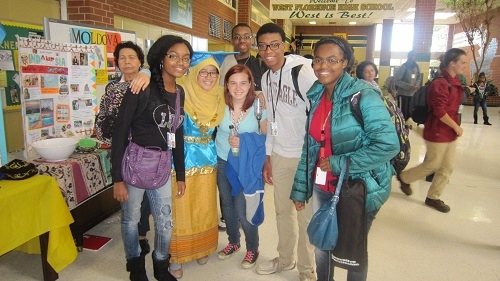
By Bewizta Hasyyati (YES 2013-2014, Indonesia, hosted with AYA in Florence, SC)
During my program year, there were around 90 Indonesian students who went to the US on the YES Program, and I observed first-hand how my fellow Indonesian exchange students were transformed: from an average student in Java Island to a JROTC champion in the USA; from a shy wallflower to an impactful community changemaker. There I was, always asking myself the same question, “what do I want to become after the YES program? How do I want to see myself as an alumna of this program?” It took me three years until I fully understood the qualities that I had started to develop during the exchange year—the willingness and determination to contribute to my own community.
Before my YES year, my days consisted of the same routine—going to school, participating in extracurricular activities, attending extra courses (such as piano lessons, swimming lessons, etc). Volunteerism was an abstract concept for me and most Indonesian students, at least in my city. During the YES program, I was more than lucky to be hosted in a community that provided a lot of volunteering experiences for exchange students. Engaging in a variety of community service projects is a big part of the YES program, and I had a local coordinator who actively endorsed the benefits of doing community service. From taking care of cats at the humane society to making crafts with children at the local festival—I had done it all. I had started to feel a sense of accomplishment and self-satisfaction that came from contributing in the community around me. That realization was a major life-changing experience for me. But it was a decision to be a student helper in my high school’s special education class that left a profound mark on my life.
Before becoming a student helper at that special education class, I had always kept my distance from people with special needs. So, when I found out about the opportunity to volunteer at the school’s special education class, to be honest I had a moment of doubt, but I decided to step out of my comfort zone and just did it. I convinced myself that this opportunity was something that did not happen every day, and that this exchange year was a perfect time to learn new things.
I was hoping to conquer the fears that I had towards people with special needs when I joined this class, but I ended up getting a lot of inspiration from the students in that class and from the teacher. I admired the teacher’s strength and patience. Being a teacher for this class meant not only teaching basic subjects, but also giving students the chance to experience things that life had to offer through weekly field trips, participation in district level Special Olympics, music therapy sessions with live piano performances, and many more activities.
When the exchange year was finally over, I returned to Indonesia with a realization that teaching and helping others grow was something that I wanted to do in the long run. I loved seeing the lights in others’ eyes when they finally understood something, or the determination that people showed when they wanted to conquer a new skill. That moment of realization directed me to choose psychology as my major at university and to participate in several volunteer teaching projects that I did after that exchange year. In the near future, I plan to establish an inclusive teaching project in a local, low-income community which includes both typically developing children and children with special needs in the same setting.
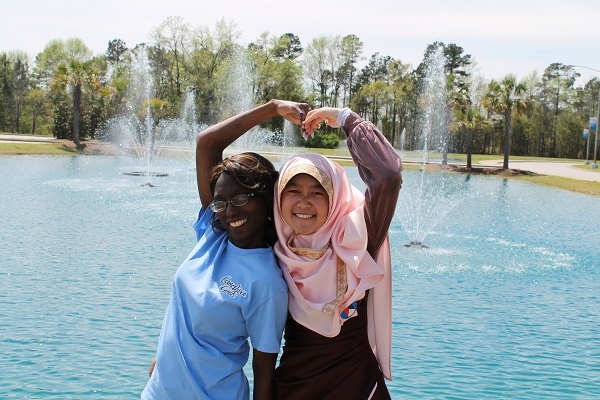
I used to think that by volunteering, I was wasting time and effort by spending my time doing something for other people I didn’t even know, but when I started to get out of my comfort zone and started to interact with people in my community, I started to realize that all my life, I had privileges that sometimes I took for granted, such as being able to pursue an education, live in a healthy environment, and be raised by a family who supported me and my activities. In other words, I was reminded of how lucky I was, and how I needed to be grateful for what I had. That also made me change my mindset—now I see volunteering as an effort to give back the things that I was given, to get to know people more, to empower others. By spending a month teaching in a rural village in Brebes district, Central Java, with other students from Universitas Indonesia, I experienced the joyful faces of the second graders in the village’s elementary school that were always waiting for me every morning. I got the chance to discover the real people in the real world, with their real challenges and hopes.
And what can I say about my host family and community? I love the warmth that the people in the South possess! I was welcomed pretty much everywhere and I made a lot of friendships that are still going strong. In addition, I was always proud of how my school had defied a lot of American high school stereotypes that I had seen in movies. I was left in awe when I found out the school’s cheerleaders and jocks were actually so down-to-earth and easy-going, when I saw that real cheerleaders came in different body types (which I think was a very beautiful thing to happen—since that did not happen in my Indonesian school), when I got to meet the most popular girl in the school who was also the valedictorian and one of the most prominent athletes, and how such diverse people were in fact together in the same peer groups!
I also loved how South Carolina is a diverse state, with a lot of people from different sociocultural backgrounds living there in harmony. I loved how people are so forgiving and accepting. The church communities had always been excited to invite the exchange students (most of whom were Muslims) to their volunteer activities, and the Muslims in the local Islamic Center were always welcoming people from other religions, even for celebrations like Eid al-Adha.
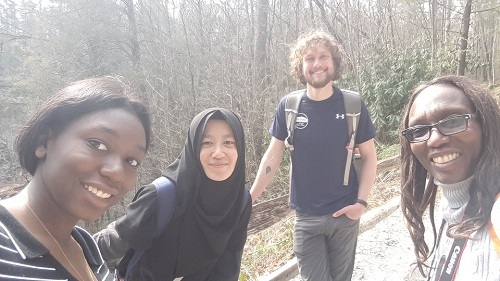
I already knew that people who would host an exchange student for a year must be great—not many people would be so kind as to volunteer to accept a stranger in their house, not to mention someone who was usually culturally-different from them. But when I finally met my host family and was immersed in my community, not only were my thoughts confirmed, but I also felt all the love that was directed at me. My host family helped me overcome my initial anxiety over being a minority in a foreign place by inviting me to join their activities—whether it was country dance night with the elderly, volunteering at a local festival, or volunteering events with local church groups. When I participated in those activities, I indirectly tried to show them that true Muslims are the opposite of what the media portrays. At first, a lot of them were too polite to ask me anything about my religion and/or culture, but when I gave presentations about Indonesia in school, which gave others the chance to ask me anything about my country, I also discovered that the media never really potrayed the diversity of American life and the fact that the majority of Americans care more about a Muslim woman’s personality instead of the headscarf that she wears.
